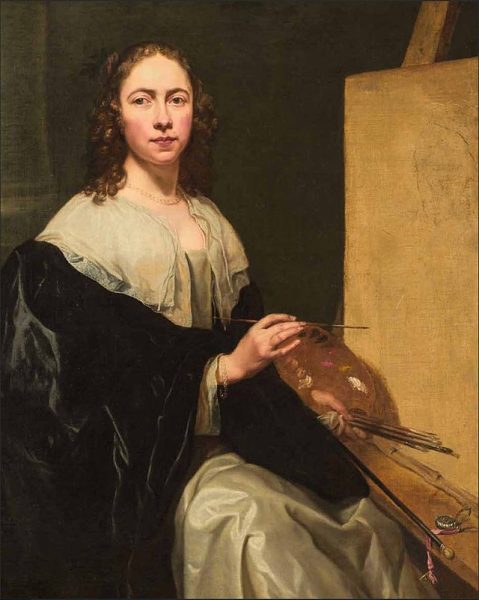The Powerful Meaning Behind “V For Vendetta”

James McTeigue’s 2006 action thriller V for Vendetta remains a cult classic. Known for its critical acclaim from viewers and critics alike, the film’s niche lies in its timelessness, understanding the danger of authoritarianism, character arcs, and subtle religious themes in the message of the movie.
V for Vendetta showcases a dystopian future of England after being ravaged by pandemic, famine and war. Seeing an opportunity in the chaos and devastation, powerful and oppressive leaders take over the country, paralyzing people with fear that lay within their anti-human agendas. After briefly getting a glimpse at the film’s setting, viewers are introduced to its two main characters: antihero “V” (Hugo Weaving), and his accomplice Evey (Natalie Portman).
V’s character is a mystery. Throughout the film there is little background information revealed about him; viewers never even see his real face which is hidden by a smirking Guy Fawkes mask. In spite of this, his demeanor is very intellectual and eccentric; V is portrayed as a charmer who has an aptitude for symbols, art and poeticism. Within the first fifteen minutes of the film, V expresses his devotion to being the one to end the persecution of the innocent in England. His proposed solution is to single-handedly eliminate everyone in power. Despite being a destructive character and cold-blooded killer, V is seen as morally virtuous as he appears to have an evident and justifiable reason for every murder he commits. Despite knowing that his end goal of achieving total anarchy is a deadly journey to embark on, his endeavors persevere on the basis of a core belief: some ideas are worth sacrificing one’s life for.
Once falling victim to the government’s torture and oppression, V’s fundamentals lie in the integrity of his famous saying: “People should not be afraid of their governments, governments should be afraid of their people.” With him strategically plotting out a yearlong series of hijacking, and eventually, destroying the government, his ultimate goal lies in provoking anger in the public to encourage them to rebel by his side. On the evening of his first plot to demolish the Old Bailey, V coincidentally bumps into Evey, a young woman who was getting arrested for violating curfew. Upon slaying the police and freeing her, V invites Evey to watch the explosion of the Old Bailey.
The day following the demolition, V hacks the broadcasting network that runs to every television and plays a pre-recorded tape explaining who he is and why blew up the Old Bailey. In his speech, he discusses how words will always retain their power, and for those who are willing to listen, they offer the enunciation of truth. He highlights how many things are terribly wrong with the country, and while people once had the freedom to object, think, and speak as they saw appropriate, there were now sensors and systems of surveillance soliciting their submission. He encouraged the people who shared his anger to join him in one year outside of the gates of Parliament to “give them a fifth of November they will never, ever forget.” Upon delivering his speech, V finds Evey and asks her to join him in his mission of starting a revolution and freeing England. Evey accepts, but shortly begins to feel uneasy with V’s destructive nature. After being asked to aid him on a murder quest, Evey breaks away and flees V. Seeing Evey’s fear, V understands what he needs to do: he must put her through the same pain and horror he once endured so that just like him, she will become unbreakable. Upon kidnapping Evey and convincing her she was taken by the government, V imprisons her in a simulated concentration camp he created in his home. For the next several months, Evey is kept in solitary confinement and brutally tortured to test her loyalty to V. After several weeks of encountering endless dehumanization, Evey is told that she will be executed if she doesn’t disclose V’s whereabouts. Upon answering that she’d rather die than betray V, the guard congratulates her and sets her free. Shocked and confused at the encounter, she opens the prison doors only to find herself inside V’s home. Furious and in disbelief, she rages at V for putting her through the hell that he did. Despite feeling guilty for his actions, V still stands behind his word that everything he did was to eliminate her fear and make her stronger. Still furious at V, but eventually understanding his point of view, Evey asks him to take her outside. The scene ends with her joyously crying in the rain, symbolizing her freedom and rebirth.
One year from the start of the film, V fulfills his promise of bringing justice to England as he successfully starts a revolution and eliminates everyone in power. His final wish before dying from fatal injuries was to demolish the Parliament building, which he left Evey to do on the eve of November 5th. Marking the end of the tyrant and oppressive rule, hundreds of thousands of people wearing V’s Guy Fawkes masks gather to watch the explosion. As Evey overlooks the destruction from a distance with a former federal agent by her side, he asks her who V was. To his question she responds: “He was my father. He was my mother. He was my brother. My friend. He was you. And me. He was all of us.”
After years of rewatching V for Vendetta, its real meaning finally caught up to me, which, surprisingly, is not about anarchy or violence. It instead portrays this profound concept that all it takes for the world to change is an idea. It doesn’t matter who puts this idea out there or what they are like as a person: it’s their beliefs that will shape and revolutionize the world. The person is symbolic, but their idea is eternal. A powerful quote from the movie that pinpoints this phenomenon: “We are told to remember the idea, not the man, because a man can fail. He can be caught, killed, and forgotten, but 400 years later, his idea can change the world… Ideas are bulletproof.” The portrayal of V’s character flawlessly highlights this as he never had a character identity; he had no backstory, no family, no friends, no name, no age. He did not even have a real face to be remembered by. Yet, he generated an idea powerful enough to eliminate England from its oppressors. Evey’s final quote “he was all of us” further demonstrates that all it takes to change the world is an idea.
But alas, a high price one usually pays with producing a groundbreaking idea is self-sacrifice, which is where the film’s spiritual meaning sneakily lies. The concept of sacrifice is heavily emphasized through Christianity’s perception of Jesus. Despite being a non-Christian, I still recognize a vivid parallel between V and Jesus Christ. Similarly to V’s character, nobody knows anything about the first thirty years of Christ’s life. The Bible doesn’t disclose what Jesus’ personality was like or what he did in his spare time when he wasn’t preaching. Nobody knows if he was funny or eccentric or had an aptitude for poetry. But what humanity knows and remembers are his ideas. As a matter of fact, we remember those ideas so profoundly that thousands of years after Jesus suffered and died the most humiliating death imaginable, we celebrate a holiday on December 25 that commemorates his message of love and generosity by exchanging gifts with one another. Just like Christ, V pays the price for his ideas and meets his fate at the end of the film. But this was something he had been waiting for from the beginning. He knew that his sacrificial death was inevitable; his body must die in order for his ideas to live on. Despite not being pious or virtuous or godly, V still represents a Christ-figure for his sacrifice. V understood that the flourishment and greater good of humanity was worth dying for. The virtue of the human condition lies within those who selflessly gave their lives to allow those around them to have a brighter tomorrow. Or to reiterate: the best us were those who understood that their ideas were worth more than their priceless lives.
Your donation will support the student journalists of Saint Louis University. Your contribution will help us cover our annual website hosting costs.










oona • Nov 11, 2023 at 12:16 pm
What a thought provoking text, I thank you! Watching the film never gets old, as every re-watch brings something new to the table that was missed the previous times. I simultaneously hate and love how relevant this movie has become in this day and age again. With a pandemic suffered through, right-wing populism on the rise and multiple military conflicts tearing the people apart, this movie’s “dystopic” reality doesn’t seem so far off after all, does it?
Thomas • Oct 2, 2023 at 8:17 pm
Thank you for sharing your thoughts. Great read.
Mandy • Feb 5, 2023 at 12:23 am
This is exactly what must happen in Iran today. We need a V to control all minds and kills all the top leveles to free the land. I love this movie and I’ve already watched six times. And, Thank you for the wonderful article. Great writing.
Steven • Nov 1, 2022 at 11:12 am
It’s my birthday on the 6th,being English guy fawks day means a lot a tradition of watching v-vendetta and fish and chips……every year I learn something new,most recent it was’the ideas,is the weapon of change through personal sacrifice, As you wrote this article I’m reminded of the sacrifices that people make,thank you
Neil • Sep 4, 2022 at 8:51 am
Excellent article. As a Believer in Christ, I also see the comparison.
nina • Apr 15, 2022 at 5:49 pm
Thank you. I also felt something more, but felt the need to see if I could validate what I saw and felt. I have not seen it in many years, I think it is due a revisit.